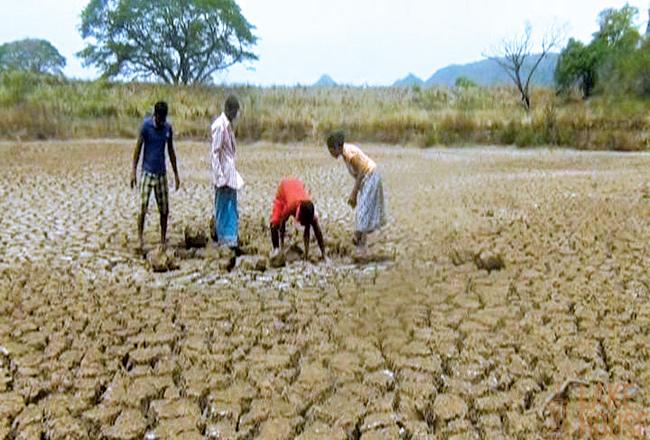Sri Lanka is once again experiencing a long spell of dry weather, which has affected thousands of people and could have a significant impact on the economy.
Sri Lanka, as a country extremely vulnerable to climate weather, clearly needs to have comprehensive policies that transcend into long-term planning on power generation, food security and infrastructure.
The current drought is hitting almost all provinces that have a significant numbers of people employed in agriculture, which is usually the first to be affected by drought.
Even though there are no forecasts of crop losses yet, it is important that policies are made and implemented with the inclusion of climate change impacts.
Despite the frequency of these droughts, no concerted effort has yet been made to formulate and adopt national drought policies that are timely, well-coordinated and sustainable.
More than 200,000 individuals have been affected due to the ongoing drought in the country. The Kegalle, Ratnapura, Kandy, and Kalutara districts have been identified as the areas affected presently.
The Kotmale reservoir which supplies water to several water bodies plays a huge contributive role to the generation of hydro-power. However, the prevailing dry weather conditions have posed hardships to the people of Kotmale.
Residents complain that they have resorted to attaching a gauze material to a tube to filter water and then use it for consumption. Residents of Kotmale travel in vehicles to obtain water from the Ranamule area.
This is the only area that has a water body that has not dried up. Engineers have observed that water levels in the Kotmale reservoir are dropping steadily at present.
“The water levels have dropped by 54%. This situation is showing signs of aggravating due to fires erupting in forests. To produce hydropower, 0.4 million cubic meters of water is being used,.” Kotmale reservoir engineer said.
Meanwhile, the residents of Yatiyantota and Magammana have also been affected due to the drought. Residents are left with no alternatives apart from consuming polluted water as the waterways are stagnant.
They say that the water is completely unsuitable for consumption.
(LI)

